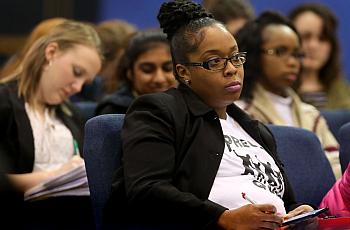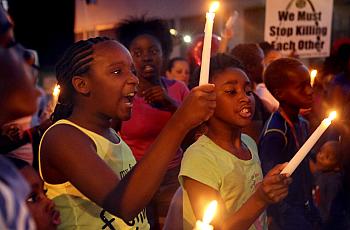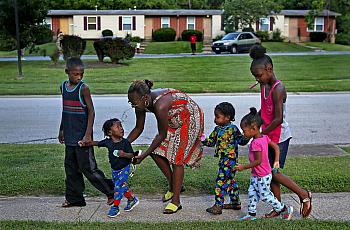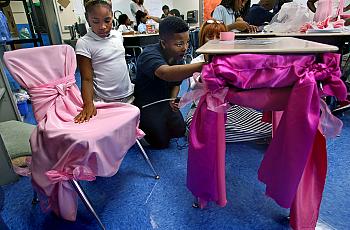
Nancy Cambria
Children and Families Reporter

Children and Families Reporter
![“Lord, help us make it through this day,” says Destiny Sonnier, 9, who drops to her knees after performing a cartwheel routine with her cousin Anthony Murry, 6, in October. “We pray so we won’t get shot.” [Photo by Laurie Skrivan, St. Louis Post-Dispatch.]](/sites/default/files/styles/teaser_list_thumbnail/public/title_images/151014%20LS%20DESTINY%20PRAY%20SHADOW%20NEW%20COLOR%20%281%29.jpg?itok=342GXQy5)
A year after Michael Brown was killed by police in Ferguson, a reporter returned to the neighborhood and spent months talking with families about how they cope with toxic levels of stress and violence.

The Post-Dispatch special report delved into an array of problems that affect the health and well-being of people struggling daily to keep a job, the electricity running and food on the table and resist the ripple effects of violence.

It has long been known that growing up in impoverished and dangerous neighborhoods such as Ferguson, Missouri dims life prospects. But now a commanding body of medical research presents a disturbing, biological picture of why.

The story of Darlene Evans, a 45-year-old single mother of 10 children living on disability without a car, reflects how toxic stress can attack maternal health before moving on to impair prenatal and early childhood well-being.

Toxic stress can have a devastating effect on children's health, with consequences stretching out over a lifetime. Nancy Cambria offers a primer on the science behind our emerging understanding of the toll chronic stress is taking on young lives.

We know "toxic stress" can have a devastating impact on the longterm health and well-being of children. But how do we counter its effects? It turns out that strengthening relationships and building resilience is key.
![[Photo by Robert Cohen/St. Louis Post-Dispatch] [Photo by Robert Cohen/St. Louis Post-Dispatch]](/sites/default/files/styles/teaser_list_thumbnail/public/title_images/St.LouisPostDispatch.jpg?itok=FEikj-Qz)
Every day as I drive to my office at the St. Louis Post-Dispatch, I pass homes with yard signs stating “Black Lives Matter and “I heart Ferguson,” but also, “We must stop killing each other,” a nod to the constant human stress, trauma and, ultimately, shortened life expectancy in these communities.